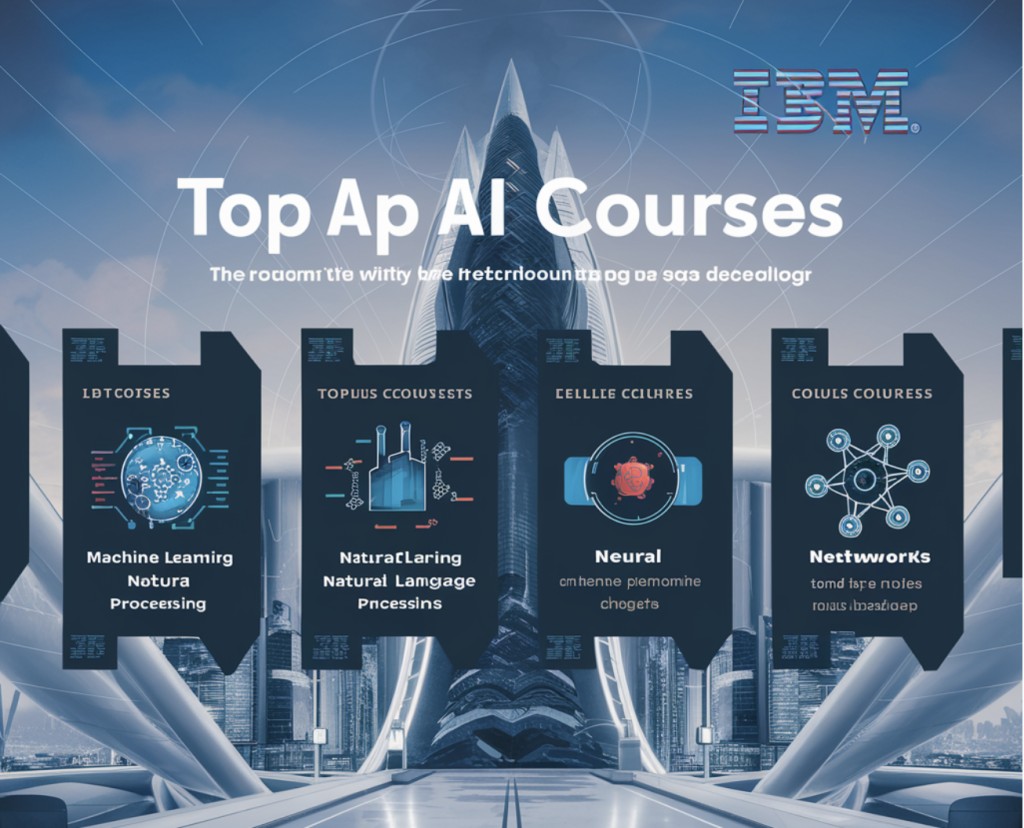IBM plays a crucial role in advancing AI by developing cutting-edge technologies and offering comprehensive courses. Through its AI initiatives, IBM empowers learners to harness the potential of AI in various fields. Its courses provide practical skills and knowledge, enabling individuals to implement AI solutions effectively and drive innovation in their respective domains. This article lists the top AI courses offered by IBM, allowing learners to delve into specialized areas and stay at the forefront of AI advancements.
IBM Introduction to Machine Learning Specialization
This course offers essential skills for a career in machine learning and data science. You’ll learn to apply algorithms, evaluate models, and incorporate best practices, culminating in a portfolio of projects.
Creating, Testing, and Deploying Machine Learning Models with IBM Cloud Pak for Data V4.8
This course teaches data scientists and business analysts how to build, test, and deploy machine learning models using IBM Cloud Pak for data. It focuses on using IBM tools to address business challenges, covering model creation, deployment, GitHub integration, and governance.
Generative AI Fundamentals Specialization
This specialization covers generative AI concepts, models, tools, and applications through self-paced courses. It includes hands-on labs with text, image, and code generation, using tools like ChatGPT, Stable Diffusion, and IBM Watsonx.ai.
Managing ModelOps with IBM Cloud Pak for Data V4.8
This course covers Cloud Pak for Data, focusing on its services and integrations to enhance organizational collaboration. You’ll learn to use IBM Knowledge Catalog, Watson Query, and Watson Studio, explore industry accelerators, and construct a predictive model within a Data Fabric solution.
Introduction to Intelligent Virtual Agents with IBM Watson Assistant
This course introduces the Watson Assistant, focusing on actions built with steps. It helps distinguish between chatbots, ChatGPT, and intelligent virtual agents, explaining their uses and the unique capabilities of Watson Assistant for non-technical users.
Building Advanced Intelligent Virtual Agents in IBM Watsonx Assistant
The Watsonx Assistant course teaches how to create instances that handle multiple user tasks via channels like web chat, telephone, and third-party applications, offering generative AI interactions. It covers creating user personas, orchestrating complex tasks with actions and subactions, and utilizing debugging tools for optimization.
Generative AI for Data Scientists Specialization
This course equips data professionals with essential skills, covering basics, prompt engineering, and practical applications in data science. It includes hands-on projects like generating text, images, and code, as well as creating prediction models, preparing you to leverage generative AI in your career.
Generative AI for Software Developers Specialization
This specialization teaches software developers to use generative AI for writing high-quality code, covering text, code, image, audio, and video generation. It includes self-paced courses on generative AI basics, prompt engineering, and hands-on projects with tools like GitHub Co-pilot and ChatGPT to boost programming productivity and effectiveness.
Advanced Intelligent Document Processing with IBM Watson Discovery
This course teaches AI specialists with intermediate NLP skills to enhance document processing. It covers creating regular expressions, customizing queries, web crawling, and using Smart Document Understanding models, aiming to improve relevance and accuracy in search results.
Mastering Document Retrieval with IBM Watson Discovery API
This course teaches how to use the Watson Discovery API to build advanced document retrieval systems. It covers techniques like regular expressions, Discovery Query Language, text classification, relevancy training, and result modification. By the end, learners will be skilled in creating efficient search applications and extracting insights from unstructured data.
The post Top AI Courses Offered by IBM appeared first on MarkTechPost.
Source: Read MoreÂ


